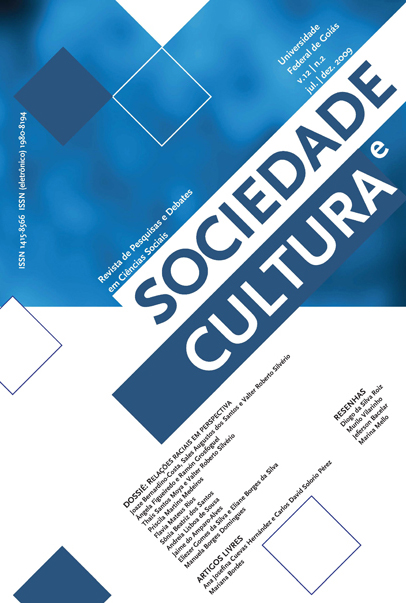Racism in the brazilian way or racism without racists: coloniality of power and denial of racism in the university environment
DOI:
https://doi.org/10.5216/sec.v12i2.9096Keywords:
racial inequalities, racial hierarchies, coloniality of power, geopolitics of knowledge, modernityAbstract
The adoption of a quota system by the Brazilian Public Universities has aroused an intensive and heated debate among several antiracist Brazilian intellectuals who aim to build a fairer society, but who also place themselves in opposite positions when the theme is the implementation of quotas. The negative reaction of white as well as mixed-race scholars, from both the left and the right wings, against this quota system is due to their concern about the possibility that Brazil might become a racist country thus rejecting the positive connotation traditionally attached to our racial mixture. In this article we use Aníbal Quijano’s concept of colonialility of power. Accordingly, the article discusses the importance of the geopolitics of knowledge since it is crucial that we understand the epistemic location and the positions taken by different social actors.Downloads
Download data is not yet available.
Downloads
Published
2010-03-18
How to Cite
FIGUEIREDO, ÂNGELA; GROSFOGUEL, RAMÓN. Racism in the brazilian way or racism without racists: coloniality of power and denial of racism in the university environment. Sociedade e Cultura, Goiânia, v. 12, n. 2, p. 223–234, 2010. DOI: 10.5216/sec.v12i2.9096. Disponível em: https://revistas.ufg.br/fcs/article/view/9096. Acesso em: 18 feb. 2026.
Issue
Section
Thematic Dossier
License
Authors who publish in this journal agree to the following terms:
- Authors retain the copyright and grant the journal the right of first publication, the work being simultaneously licensed under the Creative Commons Attribution License, which allows the sharing of the work with acknowledgment of authorship and of the initial publication in this journal;
- Authors are authorized to enter into additional contracts separately, for non-exclusive distribution of the version of the work published in this journal (eg, publishing in an institutional repository or as a book chapter), with acknowledgment of authorship and of the initial publication in this journal;
- Authors are allowed and encouraged to post and distribute their work online (eg, in institutional repositories or on their personal page) at any point before or during the editorial process, as this can bring productive change as well as increases the impact and the citation of the published work (see O Efeito do Acesso Livre).



